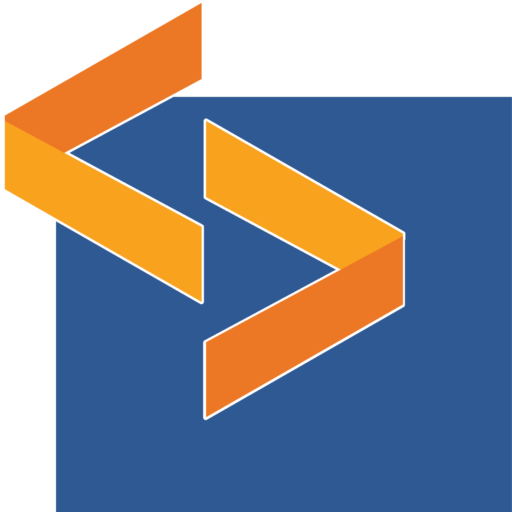NEWS ITEMS
Computer Museum of America Obtains a 1985 CRAY-2 Supercomputer
5,500 Pound Rare, Original Artifact Will Be on Display Beginning June 17 in Atlanta
ROSWELL, Ga. (April 7, 2021) – Computer Museum of America (CMoA), one of the Atlanta area’s newest and most unique museums showcasing a comprehensive collection of artifacts from the digital revolution, obtained a rare 1985 CRAY-2 supercomputer from NASA. The vintage 1985 machine was the fastest and most powerful supercomputer at the time and NASA used it for nearly a decade to simulate flight for hundreds of research aircraft at NASA’s Langley Research Center.
The CRAY-2 will go on display to the general public beginning Thursday, June 17 during the Bytes, Brews & Bourbon event, CMoA’s after-hours series.
After NASA ceased using the 5,500-pound supercomputer at the Langley Research Center, the CRAY-2 was moved to the Virginia Air and Space Center in Hampton, Va. on May 30, 1996 for public display. The artifact arrived in March at CMoA and involved an impressive transport process that included forklifts, a special packing configuration on an 18-wheeler semi-trailer, a 580-mile journey and overnight travel, all supervised by a carefully connected team of logistical experts and artifact collectors.
The CRAY-2 will be on permanent display in the Atlanta area after the collections team at CMoA completes cleaning and preparing the artifact for public viewing. It will join the exhibit entitled “Supercomputing: Vanquishing the Impossible” display. Other artifacts currently on view in the supercomputing area include a 1976 CRAY 1A, 1987 Pixar, and the heaviest single artifact at the museum, the CRAY T932 weighing in at 26,000 pounds.
The CRAY-2 was manufactured by worldwide supercomputer leader Cray Research and was one of the most powerful computers in the world when it was installed in 1988. Named “Voyager” at the time by NASA Langley researchers, CRAY-2 was the first of Seymour Cray’s designs to successfully use multiple CPUs.
In the 1980s, the CRAY-2 had more memory than several hundred personal computers and was used at NASA Langley to simulate aerodynamic flow over flight vehicles, to predict certain chemical reactions, to analyze and predict the flow within rocket engines, to simulate the atmospheres of other planets and to predict galactic collisions and interactions in space.
The CRAY-2 had incredible speed for its time with a mainframe of four processors and a billion-byte memory, disk storage and its own liquid-immersion cooling system. The large billion-byte central memory could hold 10 full sets of the World Book Encyclopedia and read all that information in a single second. At that time, Voyager could do all the computing in one day that was done at NASA Langley during the entire year 1970. For more information about Voyager, the CRAY-2 supercomputer, please see NASA’s 1996 press release.
In 2012, Piotr Luszczek (a former doctoral student of Jack Dongarra), presented results showing that an iPad 2 matched the historical performance of the Cray-2 on an embedded LINPACK benchmark.
Advance tickets for the unveiling of the CRAY-2 at Bytes, Brews & Bourbon, Thursday, June 17 from 5:30 to 9 p.m., cost $20 for CMoA members and $25 for non-members. Food and drink refreshment is an additional purchase. Information at www.ComputerMuseumOfAmerica.org; register at mimmsmuseum.org/calendar/.
About Computer Museum of America
Computer Museum of America (CMoA) located north of Atlanta in Roswell, Ga. is a nonprofit organization that houses one of the world’s largest, most comprehensive collections of artifacts from the digital revolution. Opened in 2019 with four exhibits – A Tribute to Apollo 11, Supercomputing: Vanquishing the Impossible, Timeline of Computer History, and The Byte Magazine Collection – CMoA unveiled a major new exhibit in 2020 featuring a fully restored and operational Enigma machine, the World War II-era cipher computer made famous in the 2014 film The Imitation Game about the revolutionary code breaking work by Alan Turing.
CMoA has worked with educational institutions, museums, and film companies with technology related exhibits and artifacts including Georgia Institute of Technology and the Smithsonian Institution and is committed to the preservation of computing devices, documents, and technology in order to exhibit, educate, and encourage future innovation. The museum is currently open to the public on Fridays and Saturdays and is located at 5000 Commerce Pkwy, Roswell, GA 30076. Additionally, the vast 44,000 square foot space is available for private events of all types. For more information, visit www.ComputerMuseumOfAmerica.org.
# # #
Media Contact:
Amanda Leesburg
Leesburg PR
amanda@leesburgpr.com
404-218-6578


